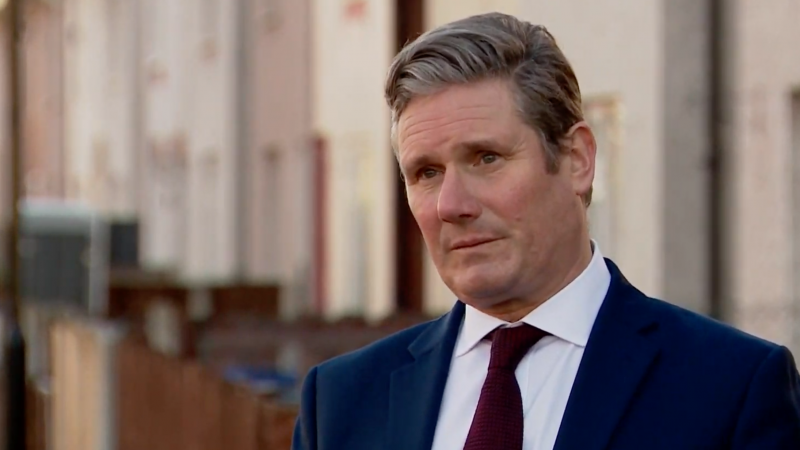
Keir Starmer has declared that the tiered system of restrictions to suppress the spread of coronavirus is “not strong enough to control the virus” and stressed the approach from the government “needs fixing and fixing fast”.
In a Sky News interview this afternoon, the Labour leader discussed the hierarchy of Covid regulations in place and commented on the first scheduled review of tier allocations unveiled by the Health Secretary this morning.
Starmer said: “My concern about the tier system is it’s just not strong enough to control the virus and we’ve been seeing the numbers going in the wrong direction across the country in the last seven days in particular.
“And there are real gaps in the system. I think, you know, there are many areas that are going to stay in Tier 3 and they will be asking themselves how on earth do we get out of this situation?”
Matt Hancock this morning told MPs in parliament that Tier 3, the most severe set of Covid restrictions involving the closure of hospitality, would now apply to many more areas from Saturday at one minute past midnight.
Tier 3 will apply to Bedfordshire, Buckinghamshire, Berkshire, Peterborough, the whole of Hertfordshire, Surrey (with the exception of Waverley), Hastings and Rother on the Kent border of East Sussex, Portsmouth, Gosport and Havant in Hampshire.
Bristol and North Somerset will come out of Tier 3 and enter Tier 2 instead, while Herefordshire will enter Tier 1, Hancock said. But he added that “in most places, we are not there yet” in terms of moving down the scale.
On the challenge for businesses, Starmer argued this afternoon: “Many businesses are really worried about the constant chopping and changing because they adapt their business, sometimes then it’s ten or 14 days and it changes again…
“I’m not going to pretend that this is easy because we do need restrictions, and no government would be able to do this without some difficulty, but we had a tiered system before lockdown that didn’t really work.
“We’re in another tiered system, and it seems to me that it’s not doing the work that the Prime Minister promised it would do.”
Asked what alternative Labour would put in place, Starmer said: “Well, we need restrictions in place and the bits that need mending most urgently are the messaging, because the messaging has been all over the place.
“Work at home, don’t work at home; go out to eat, don’t go out to eat; enjoy Christmas, have a small Christmas. So, the messaging needs to improve.
“The support for people who need to self-isolate has to improve. Many people want to do the right thing but they don’t feel they can afford to take time off work… And businesses need better support.”
The Labour leader added: “If you’re going to have restrictions, and we need restrictions, put the package around it that will actually make it work.
“And the final bit is track, trace and isolate. Crucial to the operation of any restrictions – still not working properly. All that needs fixing and fixing fast.”
Starmer also accused the Prime Minister of trying to “shift the blame” onto communities and individuals by changing the guidance around his Christmas Covid plans but rejecting calls to make a change in the law.
The Labour leader’s comments on the increased household mixing to be allowed between December 23rd and 27th followed the announcement from Boris Johnson on Wednesday that the easing of the rules would go ahead.
Starmer told viewers: “The Prime Minister needs to show leadership and he’s been weak on this because the numbers are heading in the wrong direction, the medical advice is that this could lead to real problems in January.
“Instead of the Prime Minister stepping up himself and saying I’ll lead from the front, he’s effectively saying well, it’s over to you families and communities and trying, I think, to shift the blame to other people to take responsibility.”




More from LabourList
‘Labour won’t stop the far right by changing leaders — only by proving what the left can deliver’
‘Cutting Welsh university funding would be economic vandalism, not reform’
Sadiq Khan signals he will stand for a fourth term as London Mayor